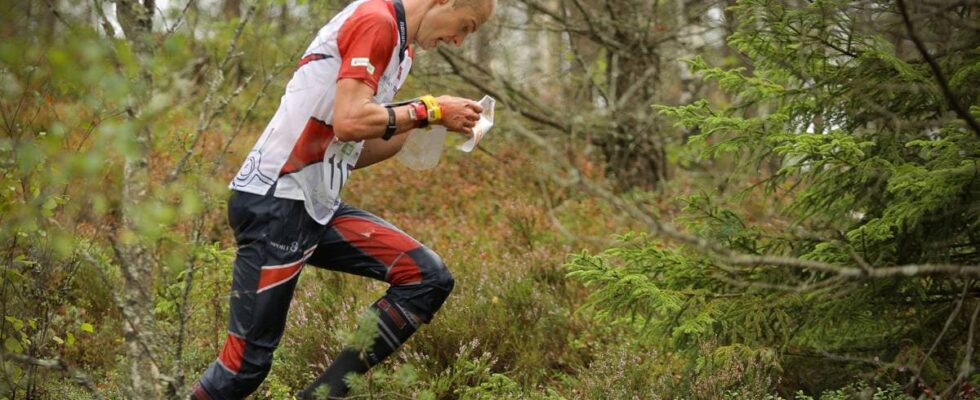– These are studies that are well received in the orientation environment. Orienteering legend Anne Margrethe Hausken Nordberg has a good laugh when she hears about the study carried out at McMaster University in Ontario, Canada. The brain of Anne Margrethe Hausken Nordberg obviously works well. She has both a bunch of WC medals and a doctorate. Photo: Audun Braastad / Audun Braastad The matter in summary – A study at McMaster University in Ontario has found that orientation is good for the brain, especially for memory.- Orienteering legend Anne Margrethe Hausken Nordberg believes the combination of problem solving and physical activity is the key.- The study showed that the faster you run, the better the positive effect on memory. – Benjamin Richard Kanter, researcher at the Kavli Institute in Trondheim, points out that orientation activates the hippocampus, an area of the brain that is important for memory. – Kanter believes that lactate, or lactic acid, can strengthen neurological contacts and thus “boost” memory. – The study concludes that it is best to train cognitive and physical skills at the same time. The summary is made by an AI service from OpenAi. The content is quality assured by news’s journalists before publication. There, researchers have found that quickly moving around in search of waypoints is gold for the brain. Anne Margrethe Hausken Nordberg believes the decisive factor is the combination of problem solving and physical activity. – You have to make a lot of choices while moving. You change focus all the time – from broad to narrow. No two records are the same. There are always new problems to solve. That is the conclusion of the Canadian researchers behind the study as well. In the study, a group of test subjects, young adults with no orienteering experience, were sent through a trail. A third of the test subjects ran at a very high intensity, a third at a calm intensity. A control group ran the same course at high intensity, but without navigating. Afterwards, the participants were measured with both blood tests and cognitive tests. The result showed that the higher the intensity, the better the positive effect on memory. There were also significantly better results in those who additionally navigated compared to those who only ran at a high intensity. Through the cognitive tests, the researchers found a sustained improvement in what they call “spatial ability”. They also found higher levels of BDNF, a protein that has a growth-promoting effect on brain cells. In orienteering you have to think while running, perhaps with thighs and calves full of lactic acid. The hippocampus is the key Benjamin Richard Kanter researches together with Nobel prize winners May Britt and Edvard Moser at the Kavli Institute in Trondheim. The study is quite close to what is done in rat and mouse breeding at the Kavli Institute. He is not surprised by what his Canadian colleagues have found. Orientation can positively affect parts of the brain, believes researcher Benjamin Kanter at the Kavli Institute. Photo: Anders Werner Øfsti / news – In orienteering, you must constantly find out where you are compared to where your goal is. Maybe you can’t run straight to the goal, but have to take detours due to trees, terrain or other things. It activates an area of the brain called the Hippocampus. It is an area that scientists know is important for memory. – It is an area of the brain that contributes to navigation, memory and links events together. It is also one of the few areas in the brain where new neurons, brain cells, can be formed throughout life. At the same time, it is also one of the first places where you lose brain cells if you are affected by Alzheimer’s. The hippocampus is a small, banana-shaped area of the brain. In this area, new brain cells can be formed throughout life. Photo: Columbia University Medical Center The explanation for the effect being greater the faster you move, Kanter believes, lies in lactate. – Lactate, or lactic acid, triggers special chemical reactions in the brain. What we call BDNF strengthens neurological connections that can help to “boost” memory. That still does not mean that everyone must necessarily run orienteering, but Kanter is clear on one thing: – Physical exercise in combination with cognitive tasks is good for the brain. Drop GPS Today we can find our way almost anywhere with GPS. Of course, it can be practical every now and then, but it doesn’t do wonders either for our own ability to find the right way or our sense of direction. GPS finds the way for you. It doesn’t have to be the best for your brain. Photo: Reuters Anne Margrethe Hausken Nordberg’s sense of direction is probably at the top of the world and hardly needs any GPS help. And perhaps her orientation skills reduce the risk that she will be affected by Alzheimer’s as well. – I already feel grateful for everything I have experienced in orienteering. If it can also help me prevent Alzheimer’s later in life, that’s a bonus. Published 24.06.2024, at 18.35
ttn-69
Orientation can help preserve good brain health and avoid dementia and Alzheimer’s. – news Trøndelag – Local news, TV and radio

